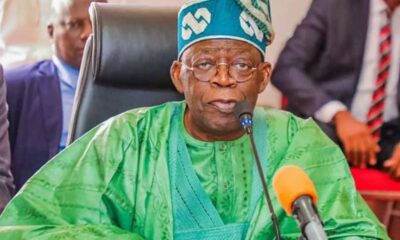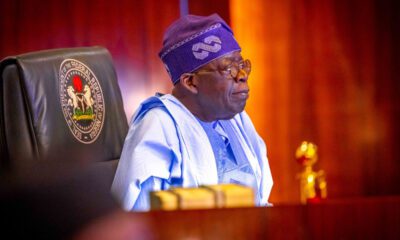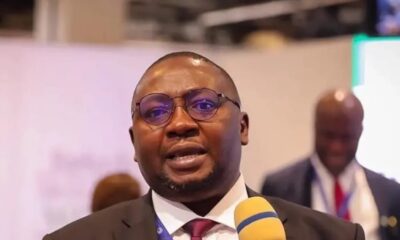Education
Policy document: NBTE lauds Tinubu on TVET as 4th pillar
Prof. Idris Bugaje, the Executive Secretary, National Board for Technical Education (NBTE), has commended President Bola Tinubu for making Technical and Vocational Education Training (TVET) as the fourth pillar in the policy document of his administration.
He said that this was a reflection of Tinubu’s commitment to transform technical education for national development.
Bugaje, who spoke in an interview with the News Agency of Nigeria (NAN) in Abuja said that this gesture would also grow the number of technical colleges in the country.
According to him, almost 60 per cent of the population is youthful and one of the highest in the world.
According to the executive secretary, there is the need for the country to reposition TVET so that the youths can be empowered.
Bugaje said: “We commend President Bola Tinubu for efforts to transform Nigeria.
“He has made TVET training his fourth pillar and this the the first time TVET is featuring as a pillar in the policy document of any government.
“So, we are very hopeful that he is going to reposition technical education because we must grow the number of technical colleges in Nigeria from the present number of 126 out of over 15,000 senior secondary schools.
“Our technical colleges are the ones to feed the polytechnics. It is the absence of products from technical colleges that leads to the low number of technicians.”
While also appealing to the president to adequately fund technical education, Bugaje said that infrastructure in technical education were already dilapidating, hence the need to revive the sector.
“When you enter the hall they do practicals in technical schools, it is either the roof is leaking, the machines there are obsolete or the materials used for practicals are not available.
“The principal in such a school is a graduate of sociology, the instructors have no experience and so they are not delivering.
“There is need for a marshall plan for technical education in Nigeria. We have to declare not only state of emergency which is easy to do.
” But let us also have marshall plan for technical education so that we can reinvent the colleges, retrain the teachers and instructors and bring new equipment.
“Buy state-of-art equipment in welding- underwater welding and train the people and give them proper certification so that can have jobs across industries. So funding is fundamental,” he said.
The executive secretary stressed the need to bring the informal skills sector into TVET training programme so as to discourage the importation of skilled manpower.
Bugaje said: “If we don’t produce the skills ourselves, we loose a lot from other countries.
“We need to reposition our polytechnics and to do this, we must bring in the informal skills sector into our training programmes.
” Look at Apo mechanic village in Abuja, the Ariaria market in Aba, Computer Village in Lagos, Panteka in Kaduna and see the wonderful things they are doing there.
“In Panteka, there are about 38,000 enterprises, they don’t have any certification and there is no quality assurance.”
According to him, the board is now asking polytechnics to engage them to give them skills qualification training and certificate for the skills they have.
Bugaje added:”So, that if the private sector is looking for skills qualification they will go there and recruit certified welders and fabricators and certified pipe fitters.
“So, that is why we need to mobilise resources so that TVET can lead to the real industrialisation of Nigeria.”
He said that if the government concentrated on the informal skills sector, train the technicians and craftsmen, Nigeria would be able to feed not only her industries but also industries from other countries of the world.
Bugaje, while calling for the creation of more polytechnics to deliver the skills needed for the overall development of the country, also suggested the conversation of some universities that were not performing into polytechnics.
“Some states have two to three federal universities but in reality, for every university graduates of HND from the polytechnic, so we are doing the reverse.
“At the moment, Nigeria imports skilled manpower to deliver the dangote refinery and if we don’t produce the skills ourselves, we lose a lot from other countries.
“We need to reposition our polytechnics and there is the need to also bring in the informal skills sector into our training programmes,” he said.
Education
Kwara Govt warns against illegal charges for Common Entrance exam
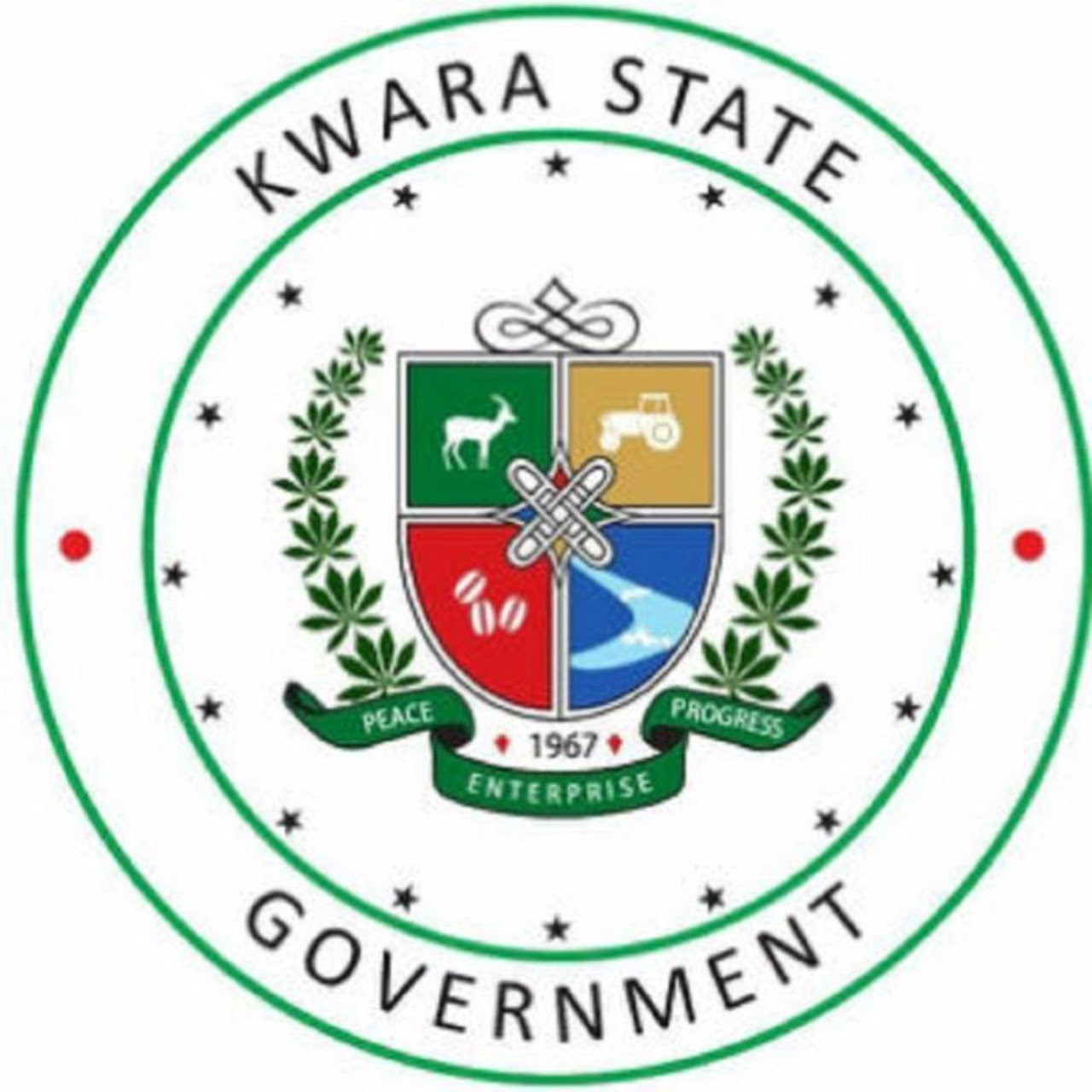

The Kwara State Government has warned principals of Junior Secondary Schools and head teachers of primary schools across the state against illegal charges for the state placement examination (Common Entrance).
Any violator will face the full wrath of the law, the state Commissioner for Education and Human Capital Development, Hajia Sa’adatu Modibbo Kawu, warned on Tuesday in her office in Ilorin.
She emphasized that the common entrance is free and government will not tolerate anyone or group of people extorting money, under any guise, from the pupils because the examination is fully sponsored by the state government.
Hajia Modibbo Kawu urged the principals and head teachers to desist from all acts that could dent the image of the state government.
She also cautioned them against aiding and abetting examination malpractices, stating that the present administration has zero tolerance for examination malpractices.
The commissioner implored the parents and guardians of the pupils to report any principal or head teacher with suspicious acts to her office directly, reiterating that her office is open to everyone.
Education
UNILORIN appoints 40 new Professors
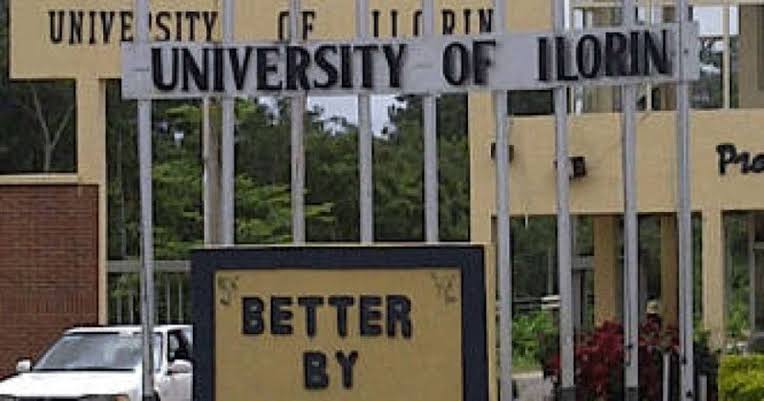

By Saka Laaro, Ilorin
The University of Ilorin has announced the promotion of 40 of its senior academics to the rank of Professor.
The elevation, which was approved by the Minister of Education, Prof. Tahir Mamman, SAN, was sequel to the recommendations of the University Appointment and Promotion Committee.
A statement from the Office of the Registrar said that the 40 distinguished scholars were found to have excelled in the realms of teaching, research and community service and subsequently promoted to the highest rank obtainable in the academia.
The breakdown of the beneficiaries of the promotion exercise shows that 11 of the new Professors are produced by the Faculty of Agriculture and they are Prof. Sidiqat A. Aderinoye-Abdulwahab, Prof. L. L. Adefalu,Prof. F. O. Takim and Prof. A. A. Badmos.
Others are Prof. Foluke E. Sola-Ojo, Prof. W. A. Jimoh, Prof. M. I. Abubakar, Prof. T. H. Aliyu, Prof. R. O. Uddin II, Prof. T. O. Amusa and Prof. Mutiat A. Balogun.
From the Faculty of Arts are Prof. K. M. U. Gbodofu, Prof. Y. A. Abdullahi, Prof. Abosede R. O. Babatunde, Prof. Bolanle E. Arokoyo, and Prof. P. U. Nwosu while the Faculty of Basic Medical Sciences produced Prof. A. S. Alabi, who teaches at the Department of Anatomy.
Two Lecturers from the Faculty of Clinical Sciences were also elevated to the rank of Professor and they are Prof. T. O. Olanrewaju and Prof. O. A. M. Adesiyun.
The Faculty of Communication & Information Science also produced two new Professors through Prof. Tinuke O. Oladele and Prof. Saudat S. Abdulbaqi while those promoted from the Faculty of Education are Prof. O. O. Okoji, Prof. Folakemi O. Adeniyi-Egbeola and Prof. Florence O. Daramola
From the Faculty of Engineering and Technology are Prof. A. T. Ajiboye, Prof. A. Y. Abdulrahman, Prof. M. O. Sumonu, Prof. Rasheedat M. Mahamood and Prof. T. K. Ajiboye.
The Faculty of Law produced one new Professor in the person of Prof. A. C. Onuora-Oguno.
The Faculty of Life Sciences produced four new professors. They are Prof. M. O. Nafiu, Prof. Faoziyat A. Sulaiman, Prof. Risikat Nike Ahmed, and Prof. I. O. Sule.
Those promoted from the Faculty of Management Sciences are Prof. M. A. Ajayi and Prof. Rihanat I. Abdulkadir as the Faculty of Physical Sciences also produced two new professors through Prof. Haleemat I. Adegoke and Prof. O. A. Abidoye.
The promotion of Prof. Monisola A. Tunde of the Department of Geography and Environmental Management was also confirmed while the Faculty of Veterinary Medicine also produced one of the new Professors in the person of Prof. Z. Jaji from the Department of Veterinary Anatomy.
Education
Student Union election turns deadly: One student flees for life, parents killed in tragic attack
In the quiet town of Ekiadolor, the College of Education became a battleground as student politics turned deadly. Odunuga Gbenga, a promising student, found himself thrust into the chaos of campus conflict.
It all began innocently enough when Gbenga was nominated as a contestant for the Student Union presidency. Little did he know that this simple act would plunge him into a nightmare.
During the election, tensions ran high as rival factions clashed violently. What was supposed to be a democratic process spiraled into chaos, with reports of killings, rapes, and riots echoing across the school grounds.
In fear for his life, Gbenga fled the campus, seeking refuge in the familiar embrace of his parents’ home in Edo State. But safety eluded him as darkness fell on that fateful night.
Under the cover of midnight, a group of assailants descended upon Gbenga’s home, shattering the peace of the night. In a desperate bid for survival, Gbenga fought bravely, but the odds were against him.
Tragically, Gbenga’s valiant efforts were in vain. Though he managed to escape, his beloved parents were not as fortunate. The attackers, driven by unknown motives, mercilessly took the lives of Mr. Samuel Odunuga and Mrs. Taiwo Odunuga, leaving a family shattered and a community reeling in shock.
Since that harrowing night in 2023, the search for Gbenga has consumed the hearts and minds of his grieving family. Their plea echoes through the pages of this newspaper, a desperate cry for justice and closure in the face of unspeakable tragedy.
-
Finance4 months ago
Court orders Sen. Victor Umeh to repay N136m bank debt to AMCON
-



 Abuja Update3 months ago
Abuja Update3 months agoUNDP, FG partnership needed to achieve inclusion, equity- Minister
-
Abuja Update2 months ago
Banks drive stock market performance with N147bn gain
-
capital market2 years ago
Rt.briscoe, FBNH, Others halts negative performance of stock market
-
Submission Guidelines4 months ago
CALL FOR SUBMISSIONS: POETRY COLUMN-NND
-



 Health1 month ago
Health1 month agoCapacity training will reduce migration of health workers- NPHCDA
-



 Business4 weeks ago
Business4 weeks agoTingo Group unveils Tingo Electric, Tingo Cola drink at Lagos launch
-
News5 months ago
Oil thieves sponsoring malicious media campaign against Navy – Spokesman



